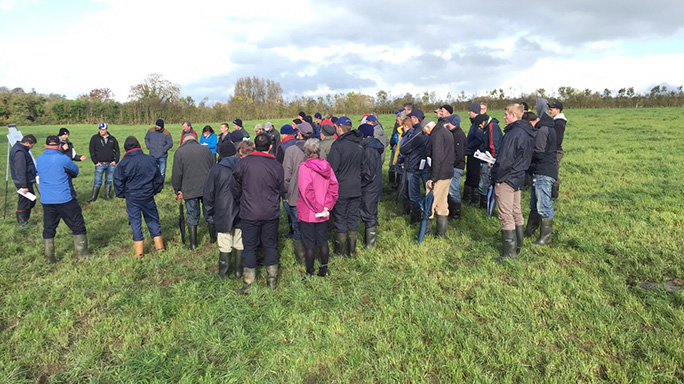Teagasc knowledge transfer labour event to be held in Kilkenny

Dairy cow numbers have increased by 327,000 since 2010 to over 1.35 million. This resulted in a 35% increase in milk production (43% based on milk solids) nationally in 2016, compared to the average of 2007 to 2009.
Based on the number of dairy young-stock currently in the national herd, survey data of dairy farmers future plans together with the relative profitability of dairying versus other farming enterprises, significant further expansion is likely to occur over the next decade.
- Coupled with the overall dairy sector growth, there has also been a dramatic change in the structure of Irish dairying in recent years. Average herd size increased from 54 cows in 2005 to 76 cows in 2016, while dairy farmer numbers remained relatively static since 2010. The proportion of dairy cows in herds of 100 cows or greater increased from 13% in 2005 to 47% in 2016.
- The dairy industry is facing a severe shortage of new young recruits. With the average dairy farmer currently 58 years old, reports estimate that Ireland will need approximately 6,000 new entrants over the next decade to replace retirees and meet the requirements of expanding herds.
To ensure that the workload of dairy farmers and dairy farm employees is manageable at all times of the year, farms must be labour efficient makingthe day to day workload easier on both man and cow. This will lead to higher levels of farmer/employee satisfaction and animal welfare.
Dairy farms, to secure access to both full and part time labour as needed during the year will be competing with alternative careers. A change in the culture of work on Irish dairy farms to ensure that adequate rest is allocated for every person working on farm is important so farming is seen as a career with an attractive work life balance that can be incorporated enjoyably with family life.
- Irish dairy farmers need to be excellent employers. This applies to both managing direct employees (full and part time) and effectively managing the incorporation of family into the business. This will require clearly defined roles and responsibilities, good communication skills and fair remuneration for work done.
- Farmers must be fully compliant as employers using contracts of employment, time sheets and payment structures in line with revenue requirements.
With this in mind Teagasc will host a knowledge transfer event on the Kinsella farm in Clogga, Mooncoin, Co. Kilkenny on Tuesday 14th November at 11am.
Speakers will include Patrick Gowing, Teagasc expansion service specialist and Pat Clarke, Teagasc labour specialist. Philip Kenny Kilkenny/Carlow FRS and John Murphy, Glanbia labour specialist, will also be in attendance.
Michael Fitzgerald, Teagasc Dairy specialist, in South Kilkenny welcomes all farmers to attend this event.
First Published 9 November 2017
